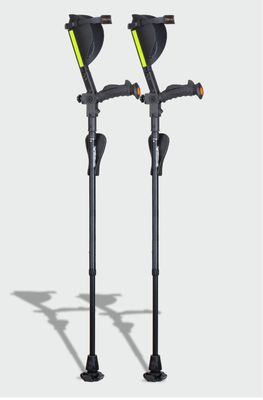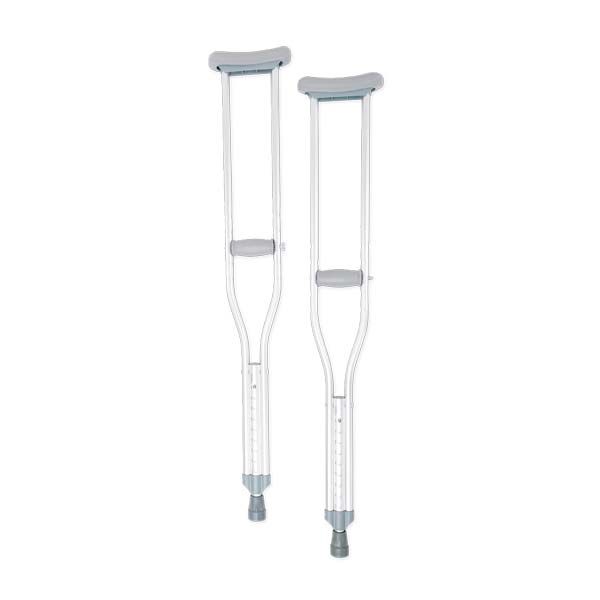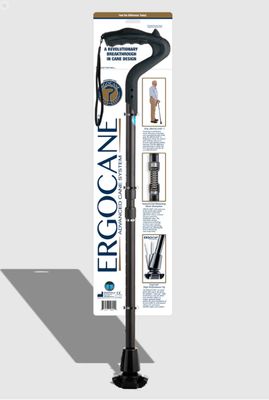
Crutches 8 pairs
$37.50
In stock
8
Product Details
Brand: Advanced Orthopaedics
Aluminum adjustable crutch with push-button height adjustment. Aluminum security nut and all accessories included.
Model Number: 612-614-618
Crutches 8 pairs
You May Also Like
New

Ergoactive Crutches (one pair) - Adult Forearm
Ergoactive Crutches (one pair) - Adult Forearm
The most comfortable and advanced forearm crutches for adults.
$249.00
Display prices in:USD
Table of Contents
Cervical Spine Brace
Cervical spine braces, also known as neck braces or cervical collars, are designed to immobilize and support the neck (cervical spine) and are typically used after neck injuries, surgeries, or for chronic neck conditions.
Types of Cervical Spine Braces:
Soft Cervical Collar:
- Purpose: Provides mild support and restricts some neck movement.
- Design: Made of soft foam or similar material, allowing limited mobility.
- Common Uses: Minor neck strains, whiplash, or neck pain from muscle tension.
Rigid Cervical Collar (Hard Collar):
- Purpose: Provides more rigid support and immobilization.
- Design: Made of hard plastic with foam padding for comfort; it restricts almost all neck movement.
- Common Uses: More serious injuries like fractures, post-surgery recovery, or cervical disc herniation.
Philadelphia Collar:
- Purpose: Offers semi-rigid support for moderate immobilization.
- Design: Two-piece plastic collar with adjustable Velcro straps, offering good support for both the front and back of the neck.
- Common Uses: Post-surgical recovery, fractures, or trauma to the cervical spine.
Halo Brace:
- Purpose: Provides maximum immobilization of the cervical spine, often after severe trauma or surgery.
- Design: A metal ring (the halo) is attached to the skull with pins, connected to a vest worn around the chest.
- Common Uses: Cervical spine fractures, after spinal fusion surgery, or unstable neck conditions.
Common Uses of Cervical Braces:
- Whiplash Injuries: Caused by rapid forward and backward motion of the neck, often in car accidents.
- Cervical Fractures: Stabilize the spine to prevent further damage to the spinal cord.
- Post-Surgical Immobilization: After procedures like spinal fusion or disc replacement.
- Neck Strains or Sprains: Help manage pain and reduce muscle strain.
- Cervical Spondylosis: Chronic degeneration of the cervical vertebrae and discs.


